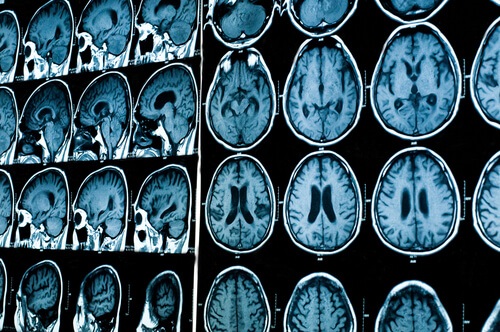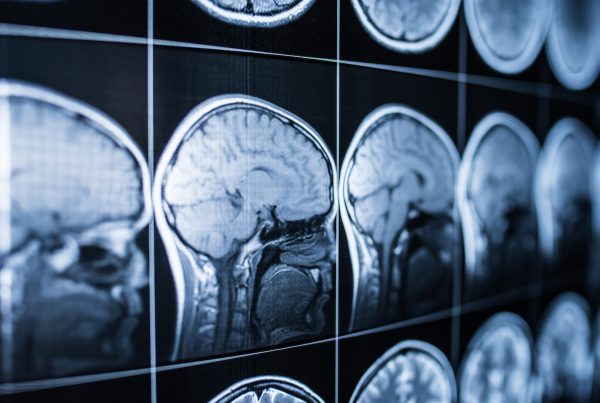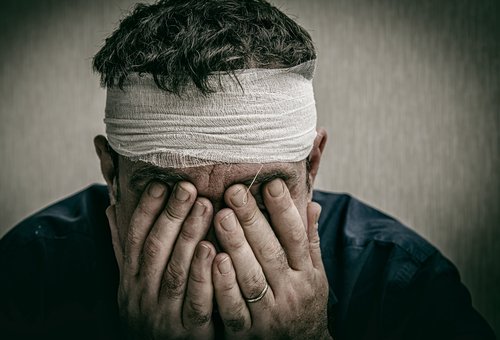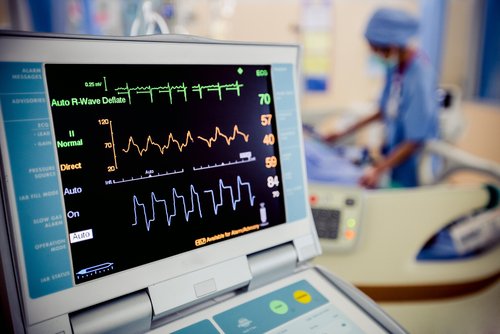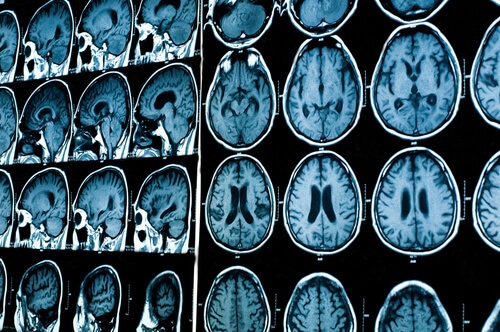 Post-traumatic stress disorder (PTSD) and traumatic brain injuries (TBI) often coexist since the event that caused the brain injury is often catastrophic. Many of the symptoms associated with these two conditions overlap, making it difficult to determine where one ends and the other begins, and even how to adequately treat these dual diagnoses effectively. This creates a great amount of suffering not only for the individual suffering from PTSD and TBI, but for friends and family as well who are often faced with unpredictable, sometimes frightening events.
Post-traumatic stress disorder (PTSD) and traumatic brain injuries (TBI) often coexist since the event that caused the brain injury is often catastrophic. Many of the symptoms associated with these two conditions overlap, making it difficult to determine where one ends and the other begins, and even how to adequately treat these dual diagnoses effectively. This creates a great amount of suffering not only for the individual suffering from PTSD and TBI, but for friends and family as well who are often faced with unpredictable, sometimes frightening events.
What is PTSD?
Some of the symptoms commonly associated with PTSD include:
- Reliving the memories of the life-threatening experience
- Flashbacks that cause the individual to lose touch with reality
- Avoiding people, places, sights, or sounds that remind the individual of the traumatic event
- Feelings of detachment from people, including close friends and family
- Shame regarding the event
- Constant alertness
Those suffering from PTSD are also at a high risk for depression, self-harm, substance abuse, and sleeping problems, which may also cause further difficulties. Many of these risk factors are also associated with brain injuries, which is what makes diagnosis difficult in some cases.
Together, PTSD and TBIs can cause changes in cognition, depression, anxiety, insomnia, and fatigue. However, PTSD is a mental disorder caused by stress, whereas a TBI is a neurological disorder caused by inflicted trauma to the brain.
The Differences and Similarities Between a TBI and PTSD
Memory
TBI: Those who sustain a brain injury may experience a period of amnesia, either before or after the injury. The length of this amnesia can range anywhere from a matter of minutes to days, or even weeks, which is a key indicator of the severity of the damage.
PTSD: Unlike the symptoms of TBI, those living with PTSD are often haunted by the memory of their experience and will have difficulty keeping them at bay.
Sleeping
TBI: These types of injuries typically result in sleep disorders. This includes trouble falling asleep, staying asleep, or waking up early. As such, one’s sleep patterns are usually disrupted, making it difficult to feel well rested.
PTSD: Nightmares are common for those with PTSD, which makes many sufferers avoid or dread going to bed. They often wake up with night sweats from powerful flashbacks, turning sleep into a nightly battle.
Isolation
TBI: Survivors of TBI might have received a lot of support and visits in the aftermath of their injury, which probably lessened over time, causing them to feel socially isolated.
PTSD: The isolation that PTSD sufferers endure is self-imposed, typically because social interactions become difficult and the vulnerability of being outside the safety of their home may feel too overwhelming.
Emotions
TBI: Depending on the location of the injury on the brain, a TBI survivor may experience unpredictable emotions, swinging from one extreme to the other. It may give the mistaken impression that the person is mentally unstable.
PTSD: Emotional numbness is one of the most common symptoms those with PTSD will face. Feeling joy or excitement is near impossible, causing an emotional shutdown that leads to problems with family and friends.
Depression
TBI: At least 50 percent of those who sustain a TBI will experience depression. The rate is even higher for those with more severe brain injuries.
PTSD: Depression is the second most common diagnosis after PTSD in many veterans. Unfortunately, many delay treatment, wanting to avoid the stigma often associated with this condition.
While not everyone who has a TBI will also develop PTSD, it is important to understand the link between the two. Awareness of the relationship these two conditions have can help effectively treat them and address the underlying problems. The first step is proper diagnosis.
St. Louis Brain Injury Attorneys
TBIs are, more often than not, avoidable. If you or someone you love sustained a TBI due to negligent actions of another, you have a right to pursue just compensation. This type of injury often requires extensive medical treatment, long-term care plans, and might even leave the individual with irreversible damage. You should not have to bear this burden alone. The Simon Law Firm, P.C. will stand by you and fight to hold those responsible for your injury accountable.
Our skilled St. Louis legal team has recovered millions in verdicts and settlements for our clients and will put our experience and dedication to work for you. Do not suffer in silence.
Call us today at (314) 241-2929 to learn more about how we can help you. Our St. Louis brain injury lawyers provide free consultations.
Recommended Reading:
Anoxic & Hypoxic Brain Injuries



